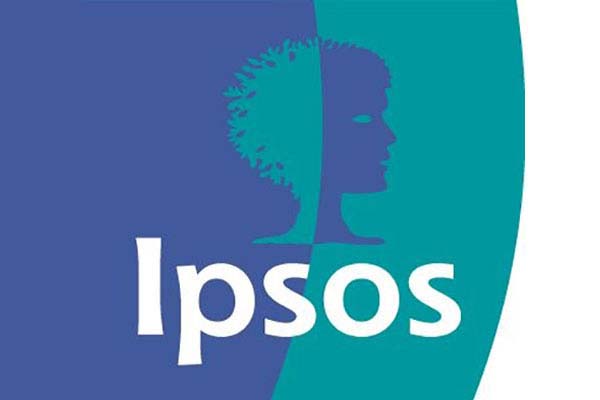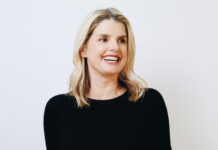Three in every 10 believe that their families will be better off in a year’s time.
Three in every ten adult South Africans believe things will take a turn for the better in the next year, while just over half believe that things will be about the same and a further two in every ten think that their families will be worse off in a year’s time.
Looking back at 2016, we see a similar picture in terms of what South Africans were feeling compared to the previous year.
November 2015 November 2016

Three in every ten adult South Africans believe things will take a turn for the better in the next year, while just over half believe that things will be about the same and a further two in every ten think that their families will be worse off in a year’s time.
Looking back at 2016, we see a similar picture in terms of what South Africans were feeling compared to the previous year.
November 2015 November 2016
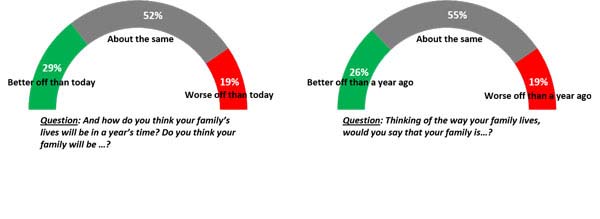
These questions formed part of the Ipsos Pulse of the People™ project conducted every six months by Ipsos South Africa. (See the full technical detail.)
Economic growth in South Africa has been very low for the last few years and citizens are feeling the pinch of rising prices and the trouble to make ends meet, therefore it is not surprising that less than a third of adults look to the future with hope. In a situation such as this, people have to make choices about where they should spend their scarce financial resources.
To gain some understanding of affordability, Ipsos asked the general public how easy or difficult they find it to afford a number of items. The chart below compares the situation in November 2015 with November 2016.
How easy or difficult is it for you to afford the following items?
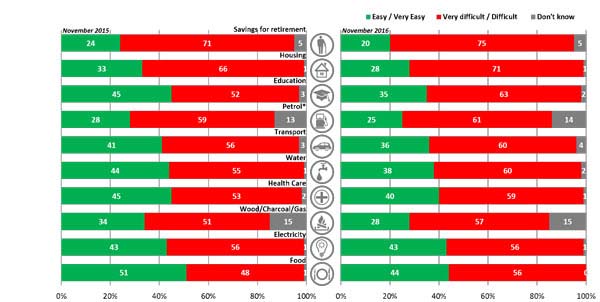
It is clear that all South Africans, regardless of income, feel the pressure from rising prices as they found it more difficult in November 2016 than in November 2015 to afford ALL the items (with the exception of electricity). The public still finds it most difficult to save for retirement and pay for a place to live, while citizens indicated that education is far more difficult to afford than about a year ago.
There has also been a sharp increase in the proportion who find it difficult to afford food – however, South Africans are clear that increases in food prices can be linked to the drought as more than six in every ten agreed with the statement “The current drought has made food prices unaffordable”.
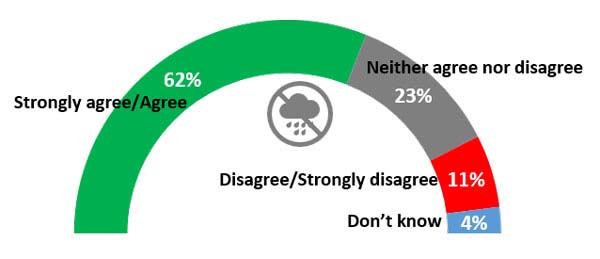
In spite of the drought, three-quarters of adults also felt that the government was not handling the issue of “Rising food prices” well: How well do you think the government is handling the rising food prices?
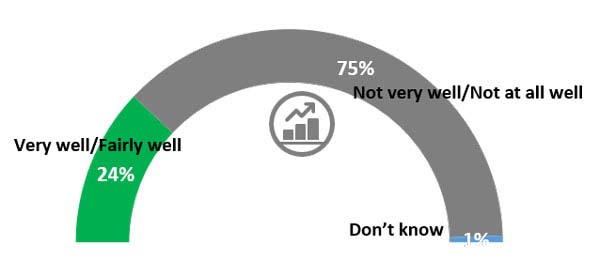
South Africans were also not confident in how the government was handling the fluctuation in petrol prices (this has an influence on those who own vehicles as well as on those who have to pay directly for transport).
How well do you think the government is handling the fluctuation in the petrol price?
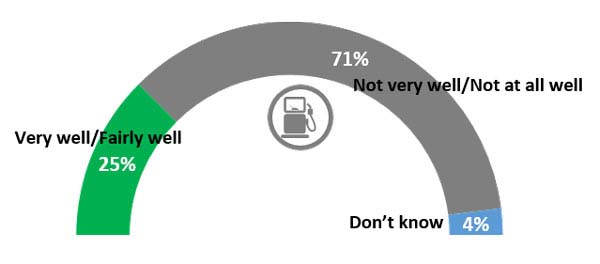
Six in every ten adult South Africans are critical of the government’s managing of the economy (reasons cited for this feeling include corruption and high levels of unemployment).
How well do you think the government is managing the economy?
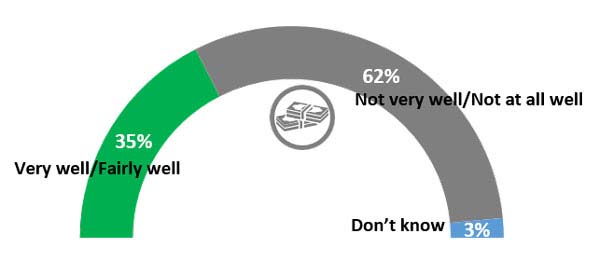
Technical Detail
During 2016 Ipsos South Africa conducted three large-scale Khayabus (Omnibus) studies. The third Khayabus, conducted from 25 October to 28 November 2016 involved a total of 3,416 South Africans, 18 years and older. Randomly selected respondents were interviewed face-to-face in their homes and home languages. Interviews were conducted all over the country, from metropolitan areas to deep rural areas. This methodology ensured that the results are representative of the views of the universe and that findings can be weighted and projected to the universe – i.e. South Africans 18 years and older.
Trained quantitative fieldworkers from all population groups were responsible for the interviewing and CAPI (Computer-Assisted Personal Interviewing) was used. All results were collated and analysed in an aggregate format to protect the identity and confidentiality of respondents.
All sample surveys are subject to a margin of error, determined by sample size, sampling methodology and response rate. The sample error for the sample as a whole at a 95% confidence level is a maximum of 1.63%.



